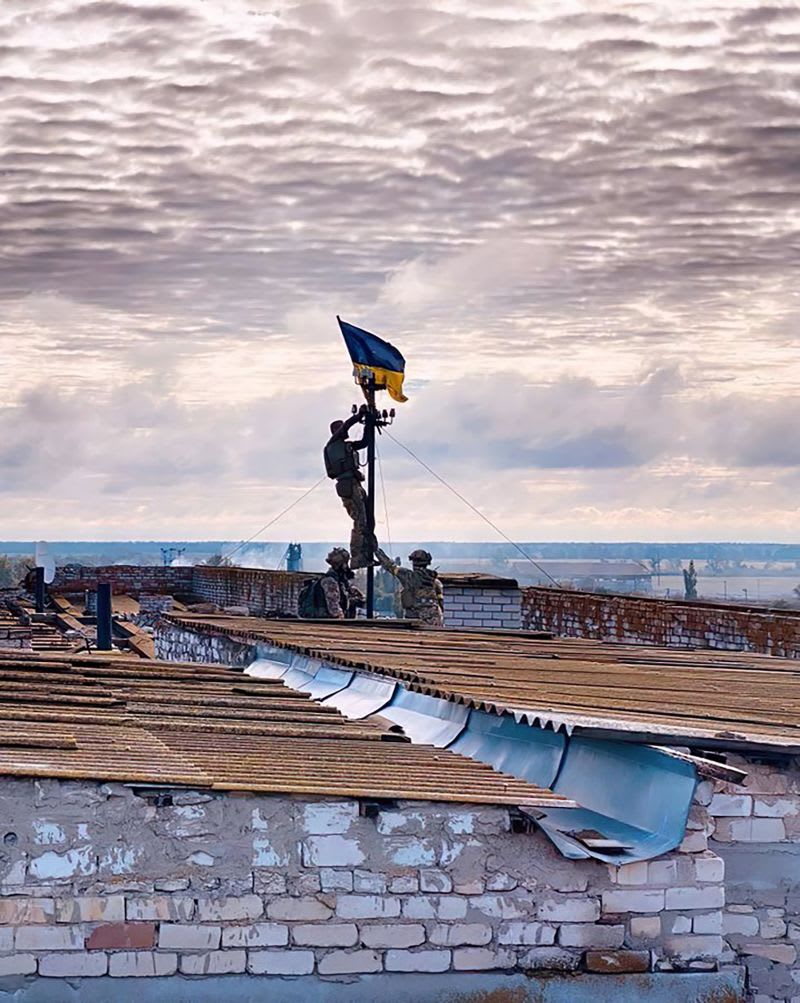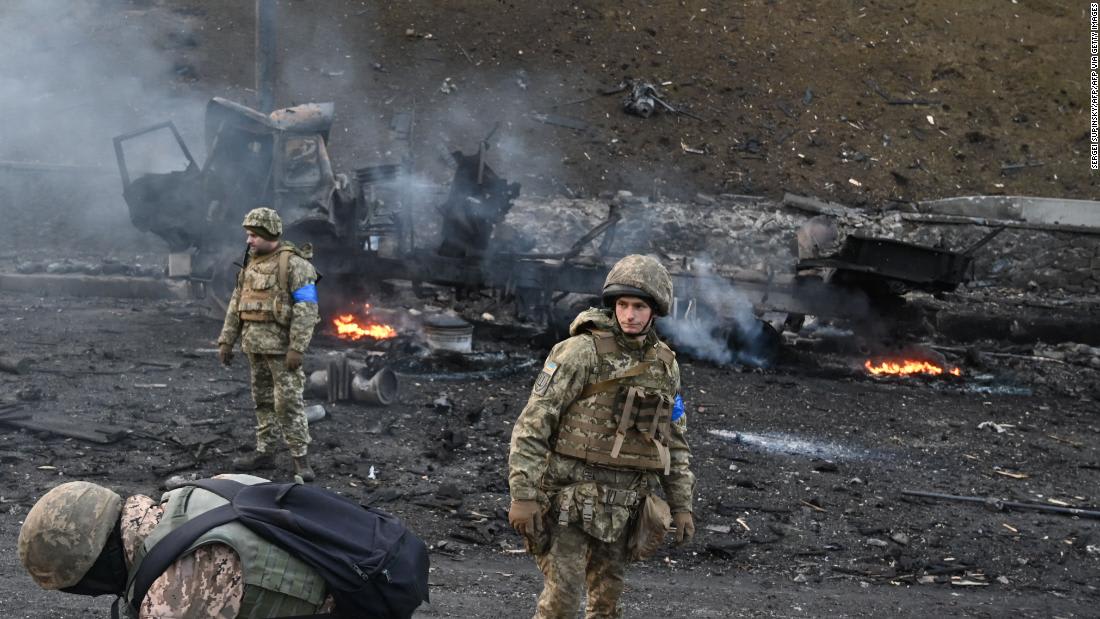The Russian and Chinese leaders will meet face-to-face next week for first time since invasion of Ukraine, a Russian official says

Austria will freeze electricity prices from December until June 2024
From CNN’s Inke Kappeler in Berlin
The Austrian government on Wednesday announced plans for a cap on electricity costs starting in December to tackle the rise in energy prices, partly triggered by Russia’s invasion of Ukraine.
The price cap “is effective for about 80 percent of the average consumption of a household and massively dampens the cost increase. For consumption beyond 2900 kWh, the market price must be paid. This also provides an incentive to save electricity,“ Chancellor Karl Nehammer said ahead of a Council of Ministers meeting.
The electricity cost freeze is expected to take effect starting on Dec. 1 and will remain in force until June 30, 2024, and should relieve a household of an average of around 500 euros ($497) per year, according to a Council of Ministers’ news release.
The government aims to pass the plan in parliament “as quickly as possible, probably in October,“ it said.
Ukraine is considering shutting down Zaporizhzhia nuclear power plant, chief nuclear inspector says
From CNN’s Yulia Kesaieva and Vasco Cotovio
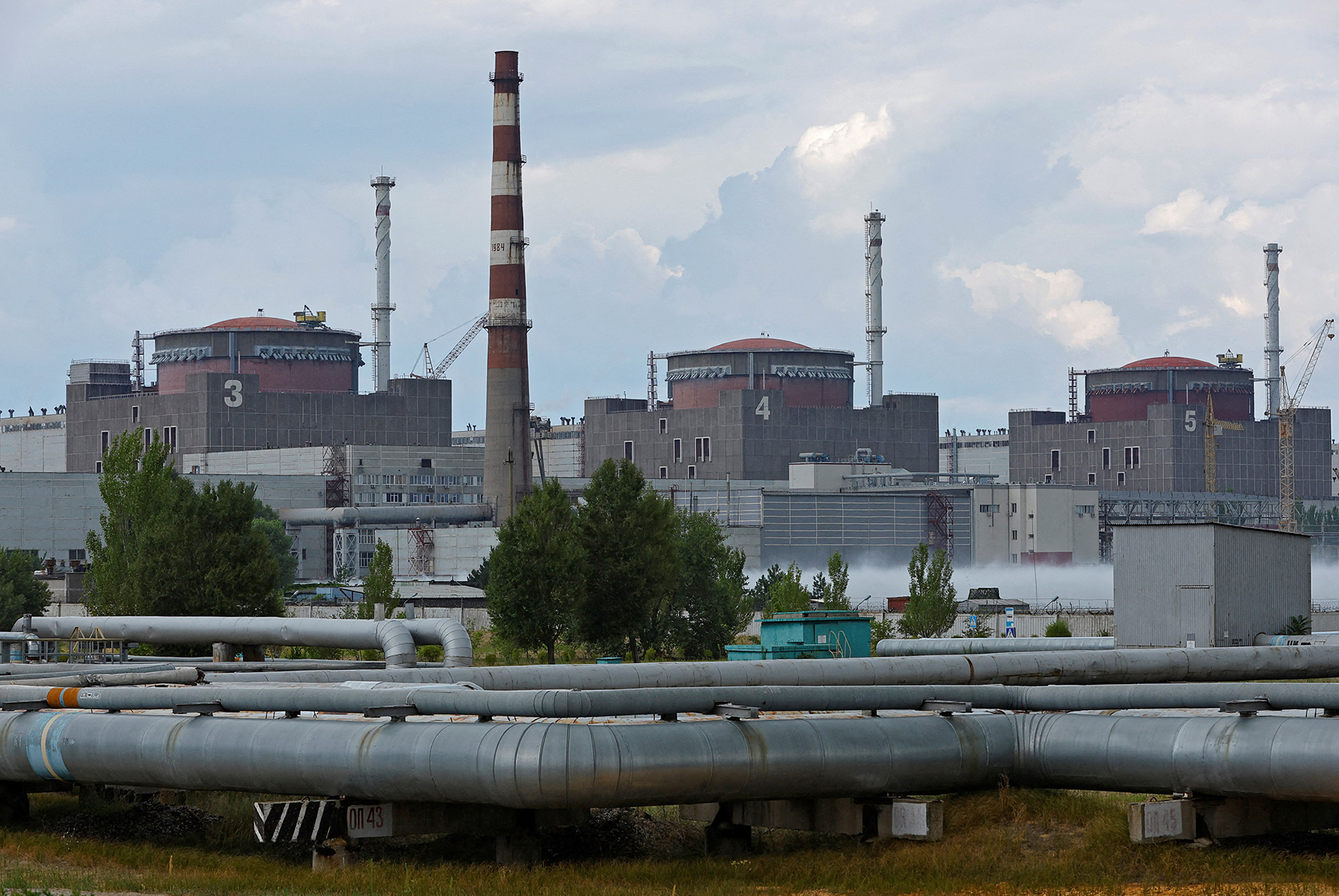
Ukraine is considering shutting down the Zaporizhzhia nuclear power plant due to the deteriorating security situation, said Oleh Korikov, the chief state inspector for nuclear and radiation safety of Ukraine.
“If conditions requiring the plant to be shut down arise, the plant and power unit No. 6 will be shut down,” Korikov said on Wednesday.
Zaporizhzhia is the largest nuclear power station in Europe.
“The continued deterioration of the situation, the prolonged lack of power supply from an external source of electricity will force us to deploy standby diesel generators, and it is extremely difficult to top up the diesel fuel supply during the war,” he added.
Korikov said maintaining the diesel generators running would not be sustainable.
For context: In an interview last month, Energoatom CEO Petro Kotin explained why diesel generators are not a sustainable alternative.
Diesel generators are backups to cool fuel and keep things operational, but there are caveats to using them for an indefinite time and it’s a “dangerous” situation to be in, he explained.
“Reliability questions could be an issue … because in this case, they could be required to work for an indefinite time, and they have limited capacity to constantly be in work mode,” Kotin added.
Korikov’s concerns are along the same lines as tensions continue at the plant.
“Four huge diesel fuel tanks are needed per day,” Korikov explained. “Potentially, we can find ourselves in a situation with no diesel fuel; it can give rise to an accident, damaging the active zone of reactors and releasing radioactive products into the environment. It will not only affect the territory of Ukraine but also produce cross-border effects.”
Currently, the plant “generates electricity and supplies it for its own needs” through an exceptional process called islanding where the plant — although disconnected from a power grid — uses its own energy to power cooling systems, according to Korikov.
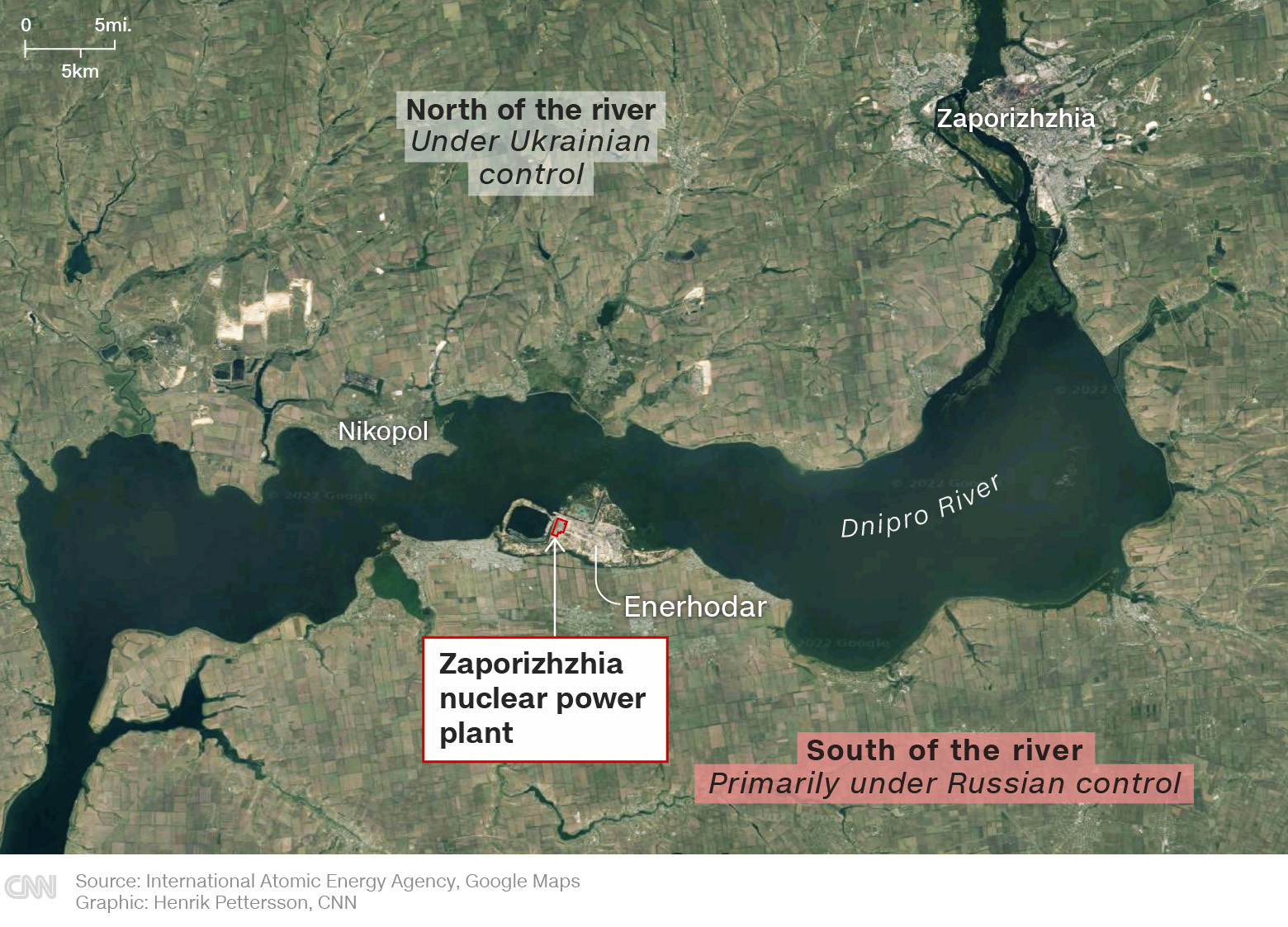
Officials say Ukrainian forces seek to retake Kherson by the end of 2022
From CNN’s Jim Sciutto and Tim Lister
One week into a new counteroffensive, Ukrainian forces are making gains in the south, with the ambitious goal of taking back most of the Russian-occupied region of Kherson by the end of the year, senior US officials and Ukrainian officials tell CNN.
The last week has seen the most ambitious ground assaults by the Ukrainians since the beginning of the invasion, following sustained attacks on command posts, ammunition stores, and fuel reserves far behind the front lines, according to geolocation of video and satellite imagery.
The US has observed Ukrainian forces achieve some success in attacking Russian supply lines, with the intention of cutting off and isolating Russian troops currently deployed west of the Dnipro River, according to a senior US official.
“What we’ve seen in the Kherson region first is some continued offensive operations by the Ukrainians,” Pentagon press secretary Air Force Brig. Gen. Pat Ryder told reporters. “They continue to make some forward movement. We are aware that they have retaken some villages.”
Ryder also said that the US has seen “some offensive Russian activity … near Bakhmut.”
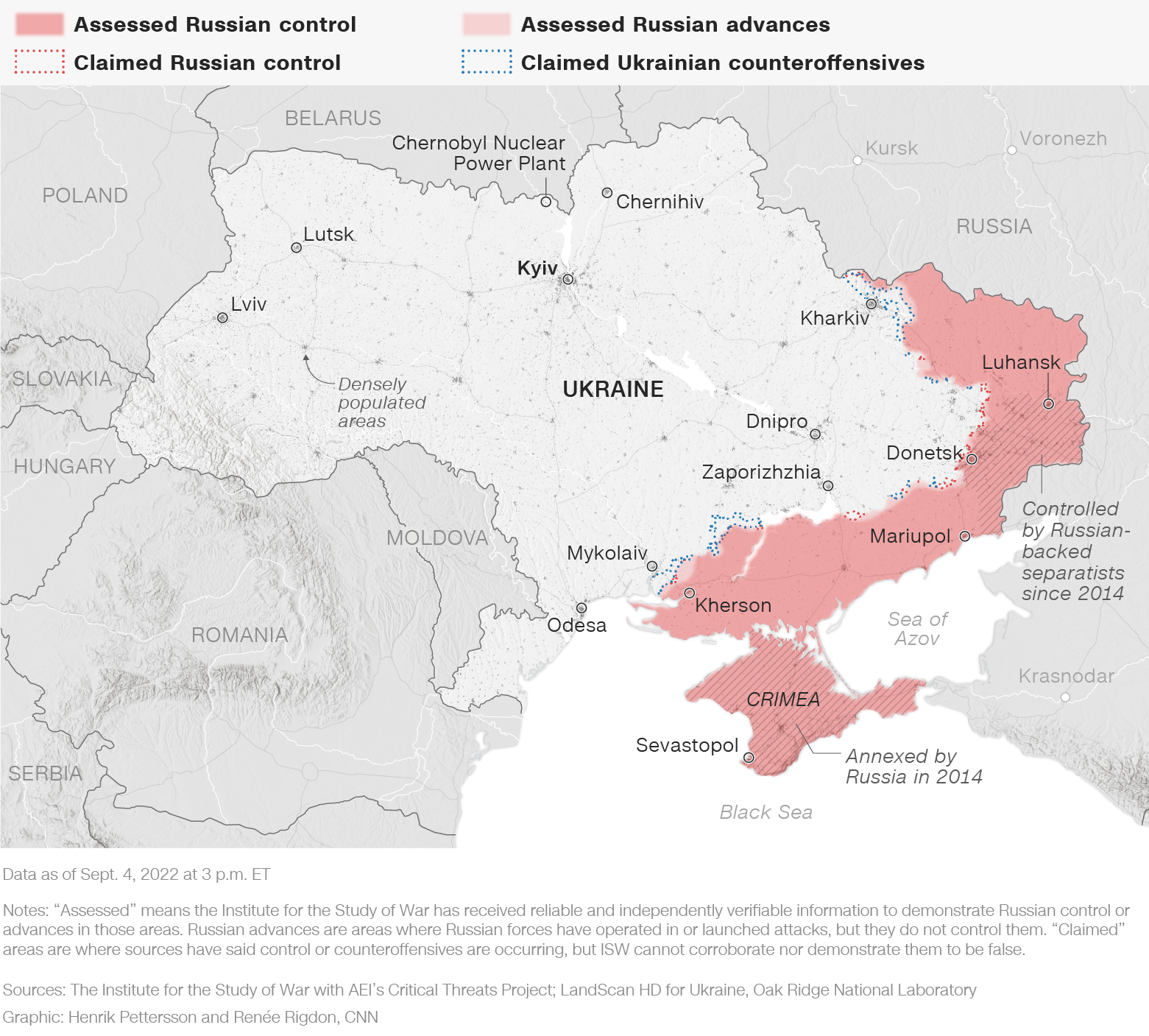
According to Ukrainian officials, the goal is to take at least all territory north or west of the Dnipro River, including not only the city of Kherson but also Nova Kakhovka, site of an important hydroelectric plant as well as the canal that supplies Crimea with much of its water.
The current offensive in the south is broad-based – extending more than 100 miles wide – to prevent Russian units from concentrating on one point. Additionally, there has been an uptick in sabotage operations and attacks on pro-Russian officials in occupied areas.
US officials acknowledge the Ukrainian goal of recapturing Kherson by the end of 2022 is ambitious but remains possible if Ukraine continues to make progress in its current operations.
Read more:
European Commission proposes reduction on electricity during peak hours to help with rising costs
From CNN’s James Frater, Anna Chernova and Eleanor Pickston
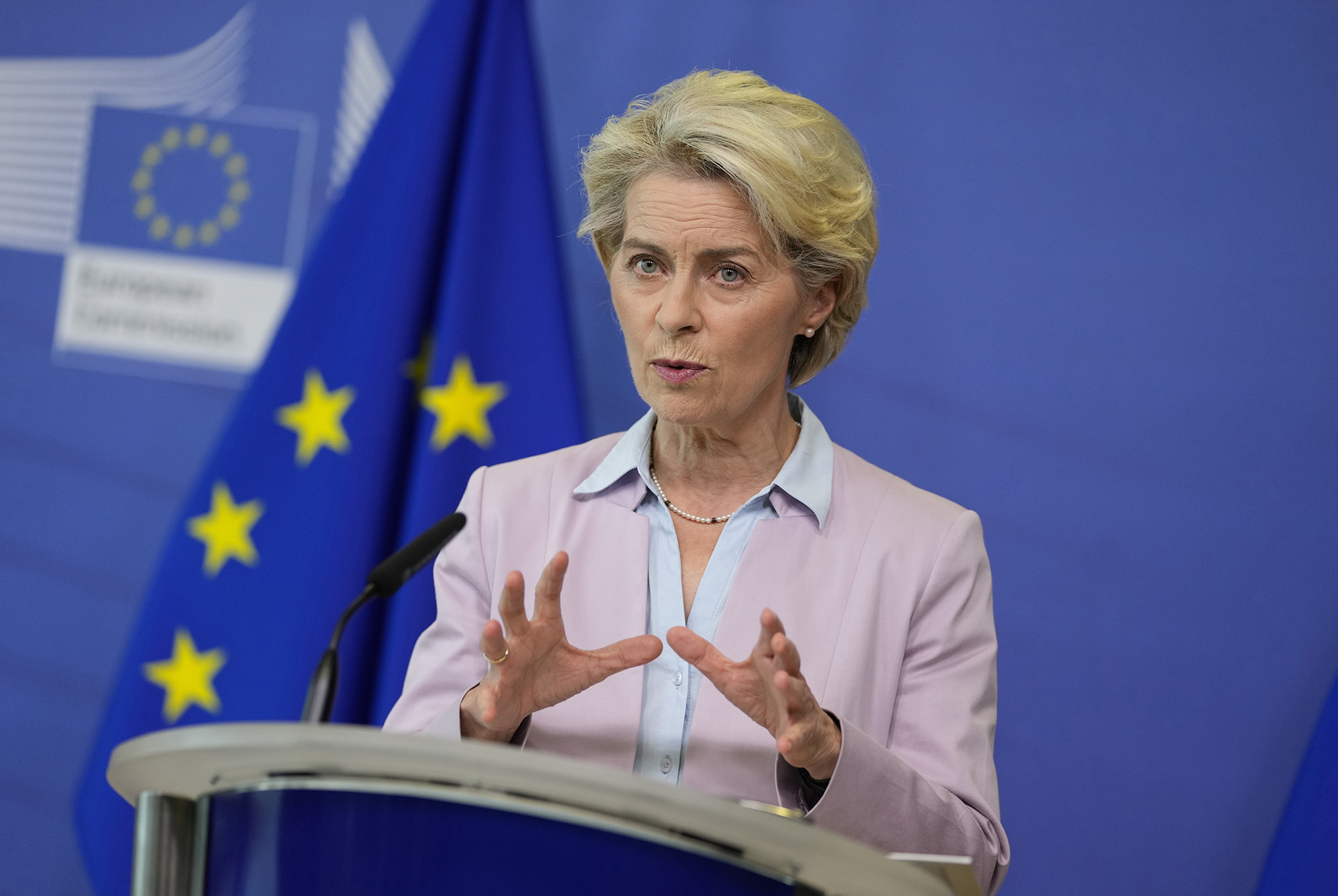
President of the European Commission Ursula von der Leyen proposed wide-ranging new measures Wednesday, including a “mandatory target for reducing electricity use at peak hours.”
The proposals were introduced with the goal of helping European citizens deal with rising energy costs as Russia’s actions in “actively manipulating the gas market” and the effects of climate change cause prices to surge.
Speaking to journalists in Brussels, von der Leyen said that while the European Union has “very much increased our preparedness and we have weakened the grip that Russia had on our economy and our continent” over the past six months.
She warned that “Russian manipulation of the gas market has spillover effects on the electricity market” and will confront Europe “with astronomic electricity prices for households and companies.”
She presented five measures with the aim of supporting “vulnerable consumers and businesses.”
As part of the measures, von der Leyen announced that the EU “will propose a cap on Russian gas.”
“The objective here is very clear,” she said. “We must cut Russia’s revenues, which Putin uses to finance this atrocious war against Ukraine.”
Further measures include a “mandatory target for reducing electricity use at peak hours” to help “flatten the peaks and a cap on energy revenues for companies using renewable sources.
Additionally, the commission will “propose a solidarity contribution for fossil fuel companies” that would see “unexpected profits” from energy companies being used support consumers and businesses.
The five proposed measures will be put to member states on Friday, according to von der Leyen.
What Putin says: Earlier Wednesday, Russian President Vladimir Putin hit out at the West’s proposed price caps on Russian energy, threatening to cut off gas and oil supplies if they are imposed.
“Well, we simply will not comply with them. And we will not supply anything at all if it is contrary to our interests — in this case, economic ones. Neither gas, nor oil, nor coal, nor heating oil — we will not supply anything,” Putin said.
Last week, the G7 nations announced plans to impose a price cap on Russian oil exports.
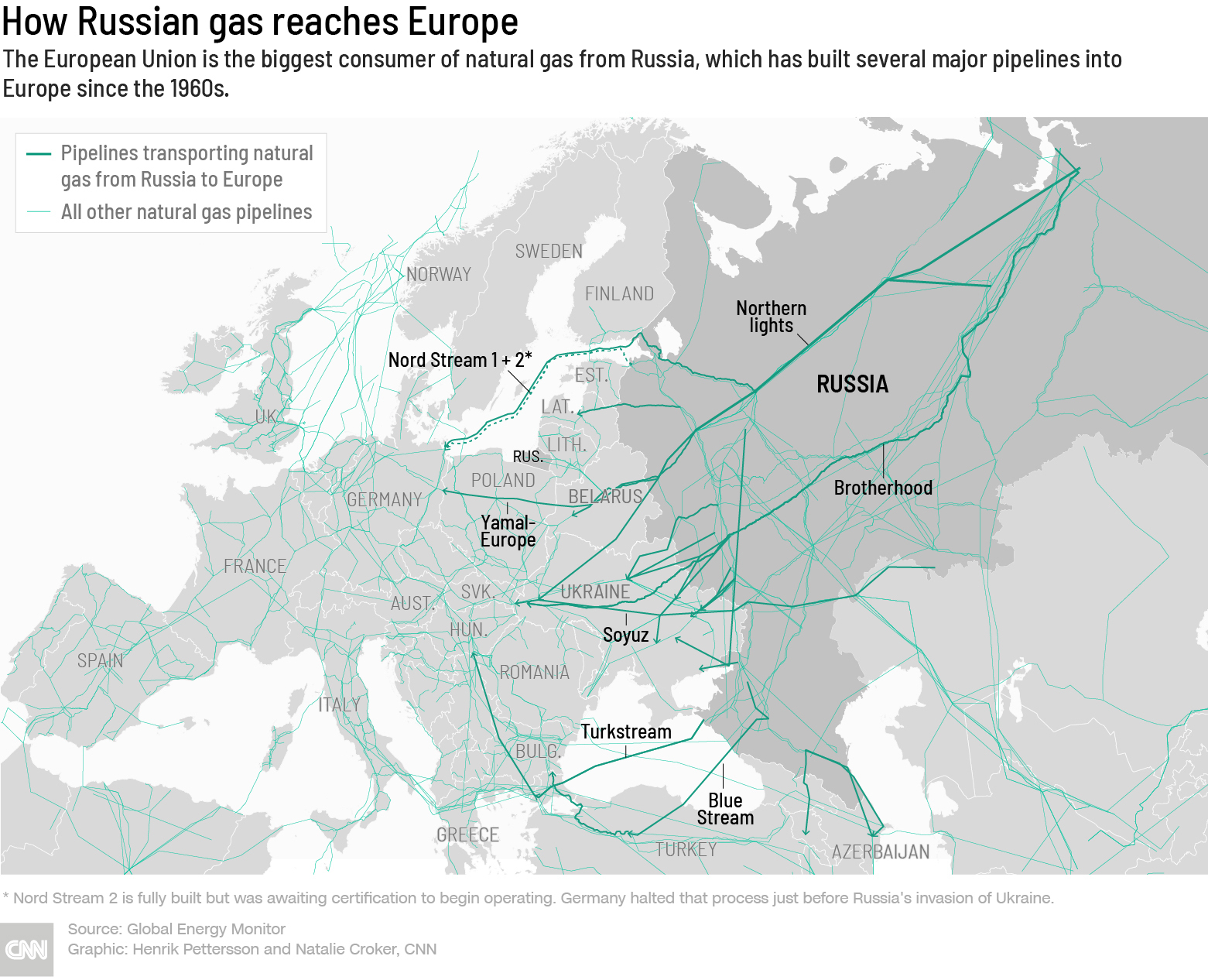
Germany’s gas storage is 85% full amid tensions over gas supplies with Russia, chancellor says
From Inke Kappeler in Berlin
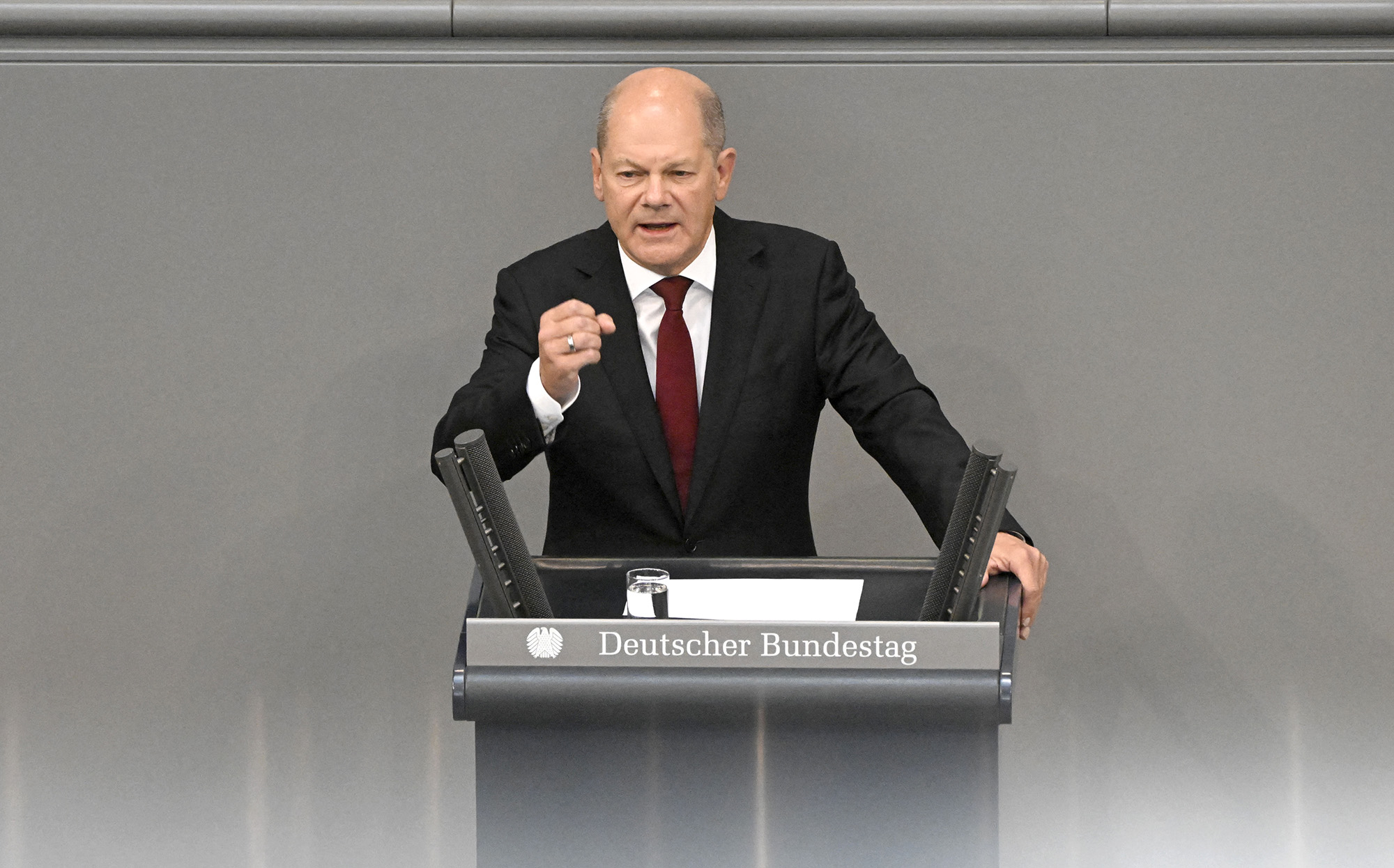
In his budget speech on Wednesday, German Chancellor Olaf Scholz promised to work on lowering prices for energy imports as tensions with Russia continue, saying “the prices for energy supplies must come down.”
“Citizens must also be able to pay the prices. And we will take care of that,“ he said.
Scholz said the country’s gas storage facilities were over 85% full at a time when Russia has cut off gas supplies to Germany.
Germany “will probably get through this winter, despite all the tension, due to building liquefied natural gas storage terminals and purchasing gas elsewhere,” he added.
“You’ll never walk alone. That is the motto of this government,“ Scholz promised. “I am sure our country will rise above. We will stand together. We will overcome the challenges we are facing now.”
Scholz last week said that the country is better prepared for winter “than was foreseeable a few months ago” when it comes to gas supply and that it “can deal quite well with the threats that are coming our way from Russia.”
US is analyzing how it can provide long-term support to Ukraine’s military, officials say
From CNN’s Barbara Starr
The Pentagon is preparing detailed analysis and working out how to support Ukraine’s military in the medium- and long-term, including after the war with Russia has ended, according to three defense officials.
The efforts are being led by Chairman of the Joint Chiefs of Staff Gen. Mark Milley and would build on the billions of dollars in military aid the US has given to Ukraine since Russia invaded in February.
The process is at an early stage and a senior defense official said it is looking at the “future of Ukrainian forces,” aiming to answer key questions about “what makes sense?” and “what do we want Ukraine to start having in the mid and the long term?” in terms of military support. As well as the current conflict, which is expected to be lengthy, the US is looking, at least, at the next five years after the war is over.
The analysis is being conducted in conjunction with the Ukrainians, and if approved by US President Joe Biden, it could lead to years of future arms sales and the establishment of a long-term military training program by the US. It would be presented to Kyiv as an assessment, but it would provide a clear road map showing how the US believes it should develop its military.
The analysis is expected to “come together in the next month or two,” the senior defense official said, emphasizing that Ukraine’s views will be central to the final effort. “What’s their strategy, what do they want?” they added. The effort will continuously evolve over the next few months as the battlefield shifts and Ukraine’s forces advance.
The initial effort could lead to recommendations for weapons and training, depending on the military strategy Ukraine approves. That could ultimately extend US and allied involvement with Ukraine for years to come through long-term, multi-year weapons contracts that could be initially finalized before the end of Biden’s first term.
Russia, Ukraine trade accusations following IAEA report on Zaporizhzhia nuclear power plant
From CNN’s Anna Chernova, Yulia Kesaieva and Vasco Cotovio
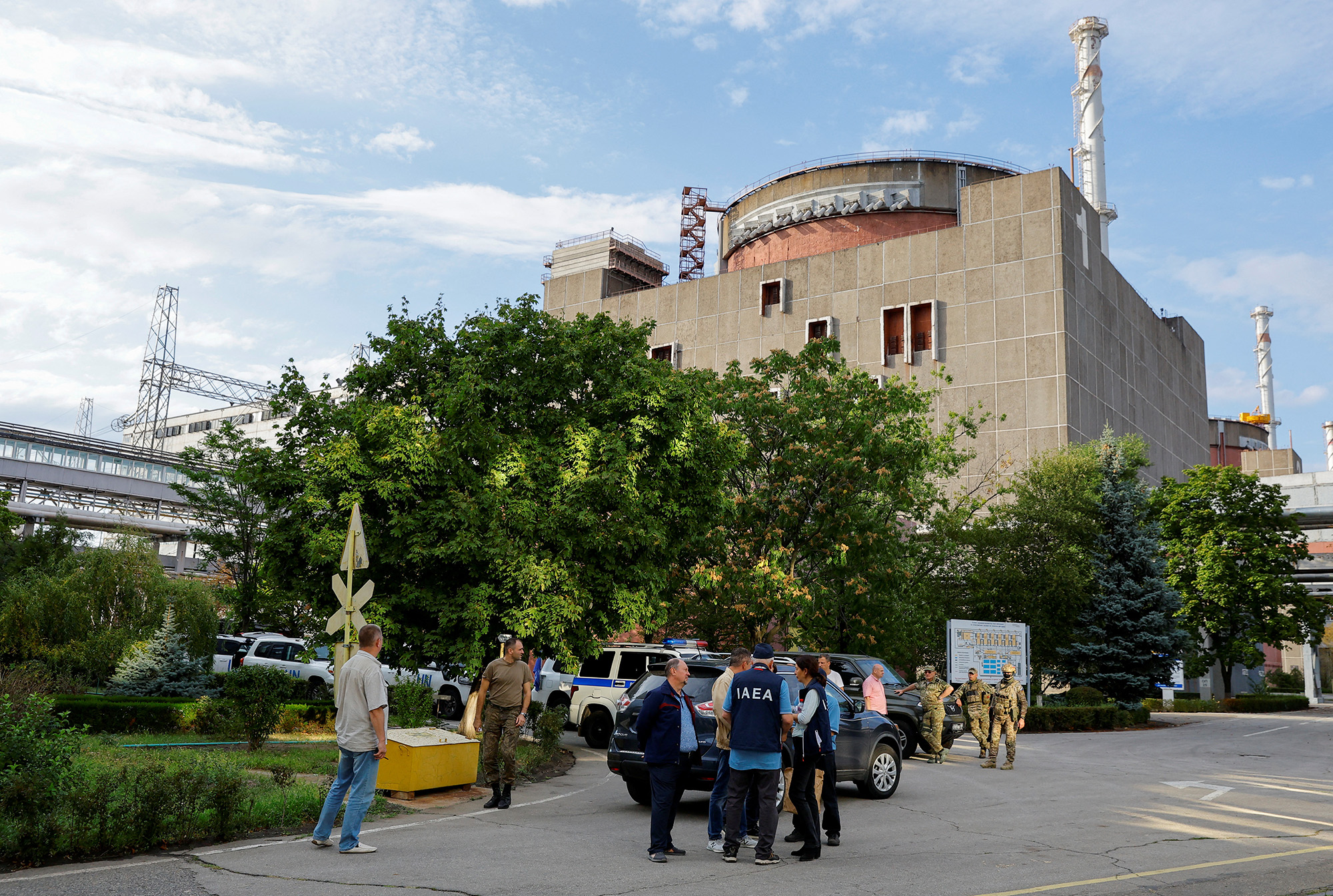
Russia and Ukraine have traded accusations after the International Atomic Energy Agency said in a report it was “gravely concerned” about the situation at the Zaporizhzhia nuclear power plant, amid ongoing fighting around the site.
Russian President Vladimir Putin said on Wednesday he trusted the report and accused Ukraine of shelling the plant.
“[The IAEA] are under pressure and cannot directly say that shelling comes from Ukrainian territory” he said on Wednesday. “We are controlling the station, our servicemen are stationed there. What, are we shooting at our own [men] or what? This is utter rubbish, it’s impossible to say otherwise.”
The Russian President went on to deny there were military personnel or equipment inside the station.
“I saw the report says that the IAEA considers it necessary to remove military equipment from the territory of the power plant. But there is no military equipment on the territory of the power plant, the IAEA staff should have seen it,” Putin said. “And they can still see it now because two employees stayed there.”
“Our military equipment… is not placed at the station. It is quite far off outside the perimeter of the station,” he added.
In its report, the IAEA said there was indeed military equipment inside the power plant, even releasing a picture of a Russian military truck.
“The team observed the presence of Russian military personnel, vehicles and equipment at various places at the ZNPP [Zaporizhzhia Nuclear Power Plant], including several military trucks on the ground floor of the Unit 1 and Unit 2 turbine halls and military vehicles stationed under the overpass connecting the reactor units,” the report said.
Ukrainian President Volodymyr Zelensky on Tuesday backed the IAEA’s call’s for demilitarization of the Zaporizhzhia nuclear power plant and surrounding support infrastructure, calling on the agency to “force Russia to demilitarize the territory of the NPP and return full control to Ukraine.”
Ukraine has also consistently blamed Russia for the shelling at the power plant and also accused Moscow of using the facility as a shield from which to fire at Kyiv’s positions across the Dnieper river.
The IAEA has called for the area around the Zaporizhzhia nuclear plant to be demilitarized but, thus far, both Ukraine and Russia seem reluctant to engage in the kind of coordination needed to achieve that.
The IAEA team dispatched to the plant included six experts who carried out what the agency describes as “essential nuclear safety, security and safeguards work.” Two of the experts have remained behind to continued that work and enable the IAEA “to observe the situation there and provide independent assessments.”
CNN has reached out to the IAEA for additional details on the work they will be undertaking at the station but has yet to hear back.
Putin accuses European nations of acting “like colonial powers” in grain export deal, citing misleading figures
From CNN’s Teele Rebane, Clare Sebastian, Hannah Ritchie, and Mick Krever
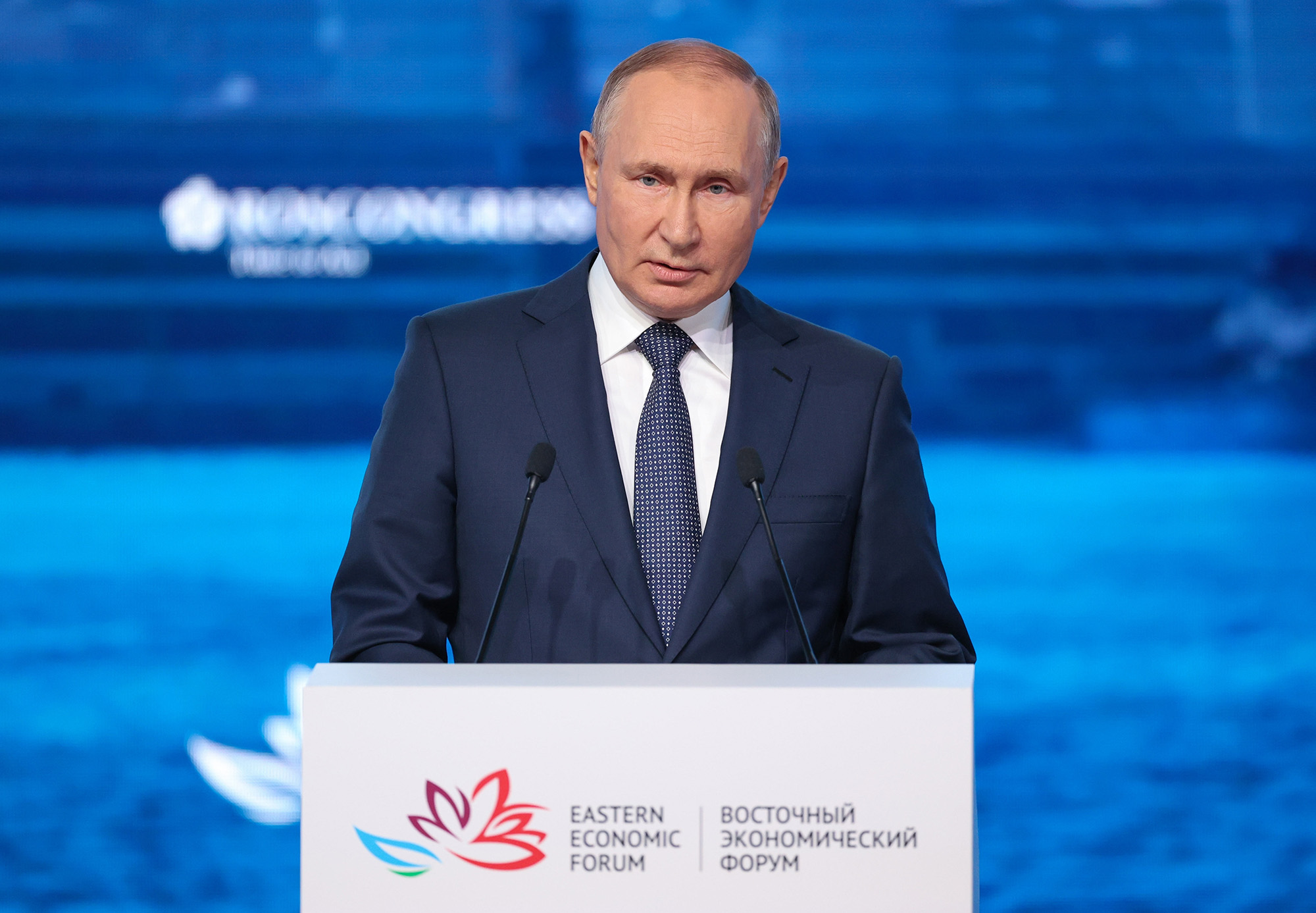
President Vladimir Putin on Wednesday accused European nations of acting “like colonial powers,” and used misleading figures to claim that low and middle-income countries are receiving a fraction of the Ukrainian grain exports they were expecting under the landmark UN-brokered Black Sea Grain Initiative.
In remarks Wednesday during his opening speech at the Eastern Economic Forum in Vladivostok, Putin cited figures that do not accurately reflect current UN data on grain shipments.
“Only 3% of the grain being exported from Ukraine is going to developing countries, the majority is going to Europe… over the past decades European countries have acted like colonial powers, they are continuing to act like that today,” Putin claimed erroneously.
“Once again, they have deceived developing countries,” he added.
Fact check: In a statement to CNN, the United Nations said that under the Black Seas Initiative, roughly 30% of “grains and other foodstuffs” have made it to low- and lower-middle-income countries, or roughly 700,000 metric tons.
Among countries classified by the World Bank as low- or lower-middle-income, the UN says that 10% of the initiative’s exports have been sent to Egypt, 5% to Iran, 4% to India, 3% to Sudan, 2% to Yemen, 2% to Kenya, 1% to Somalia, 1% to Djibouti and less than 1% to Lebanon.
Putin’s remarks were consistent with Kremlin talking points around the looming global food shortages that have been caused in large part by Russia’s blockade of Ukrainian ports. Russian diplomats in recent months have worked energetically to deflect criticism of Moscow by suggesting that Western sanctions, rather than Russia’s actions, are to blame for the crisis.
“It is clear that with this approach, the scale of the world’s food problems will only grow — which is capable of leading to an unprecedented humanitarian catastrophe,” Putin claimed, adding that he would discuss the issue with Turkish President Recep Tayyip Erdogan, who aided the deal.
The Black Sea Grain Initiative — which was brokered by the UN and Turkey — was signed by representatives from Russia and Ukraine in July.
Its purpose is to facilitate the resumption of vital exports out of Ukraine to alleviate global food shortages and rising grain commodity prices.
Prior to the deal some 20 million metric tons of Ukrainian wheat and corn had remained trapped in the port of Odesa due to a Russian blockade.
Latvia, Lithuania and Estonia reach “agreement in principle” to restrict movement of Russian citizens
From CNN’s Eleanor Pickston in London
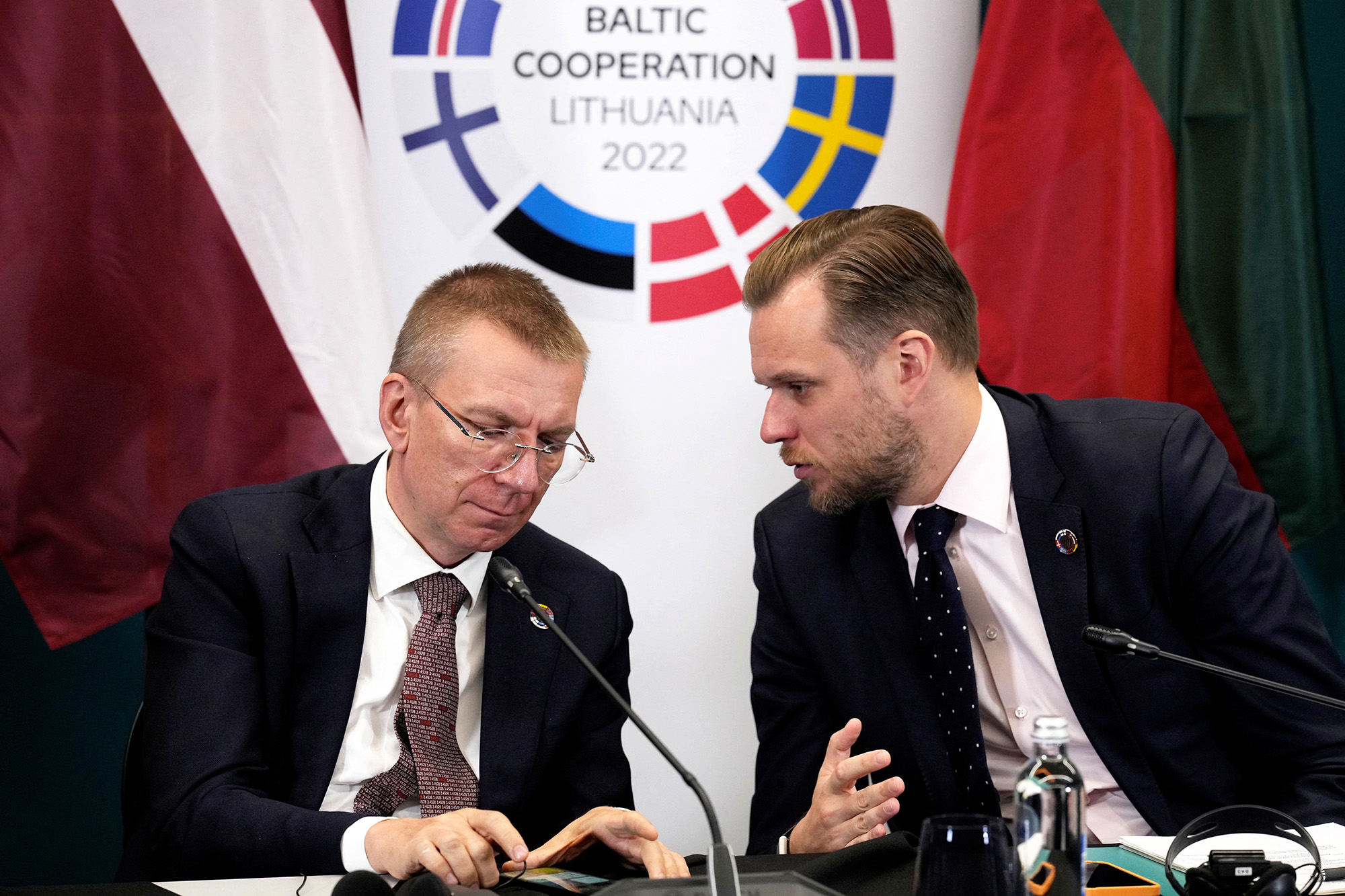
The Baltic states of Latvia, Lithuania, and Estonia have reached an “agreement in principle” to restrict the movement of Russian citizens through their borders with Russia and Belarus, according to Latvian Foreign Minister Edgars Rinkevics.
The last “nuances” of the restrictions are currently being agreed between Latvia, Lithuania, and Estonia, Rinkevics announced on Wednesday following a meeting of Nordic-Baltic foreign ministers in Kaunas, Lithuania.
What does this mean? Once implemented, the ban will prevent Russian citizens holding Schengen visas from crossing into Latvia, Lithuania, or Estonia, from Russia or Belarus, Rinkevics said. There will be exceptions on humanitarian grounds, for lorry drivers, for family reasons and for diplomats, Rinkevics added.
There will be “sufficient warning time” before the restrictions are implemented, Rinkevics added, with further decisions being made within the next 10 days.
The number of border crossings from Russian citizens holding Schengen visas has “dramatically increased,” in recent weeks, Rinkevics said, adding that the crossings are becoming a public security concern as well as a moral and political issue.
Some background: Estonia implemented a ban on Russian citizens who already held Estonian-issued Schengen visas in August. Meanwhile, the European Union has agreed to reduce the number of new visas available to Russian citizens but stopped short of an outright ban on travel to the bloc.

